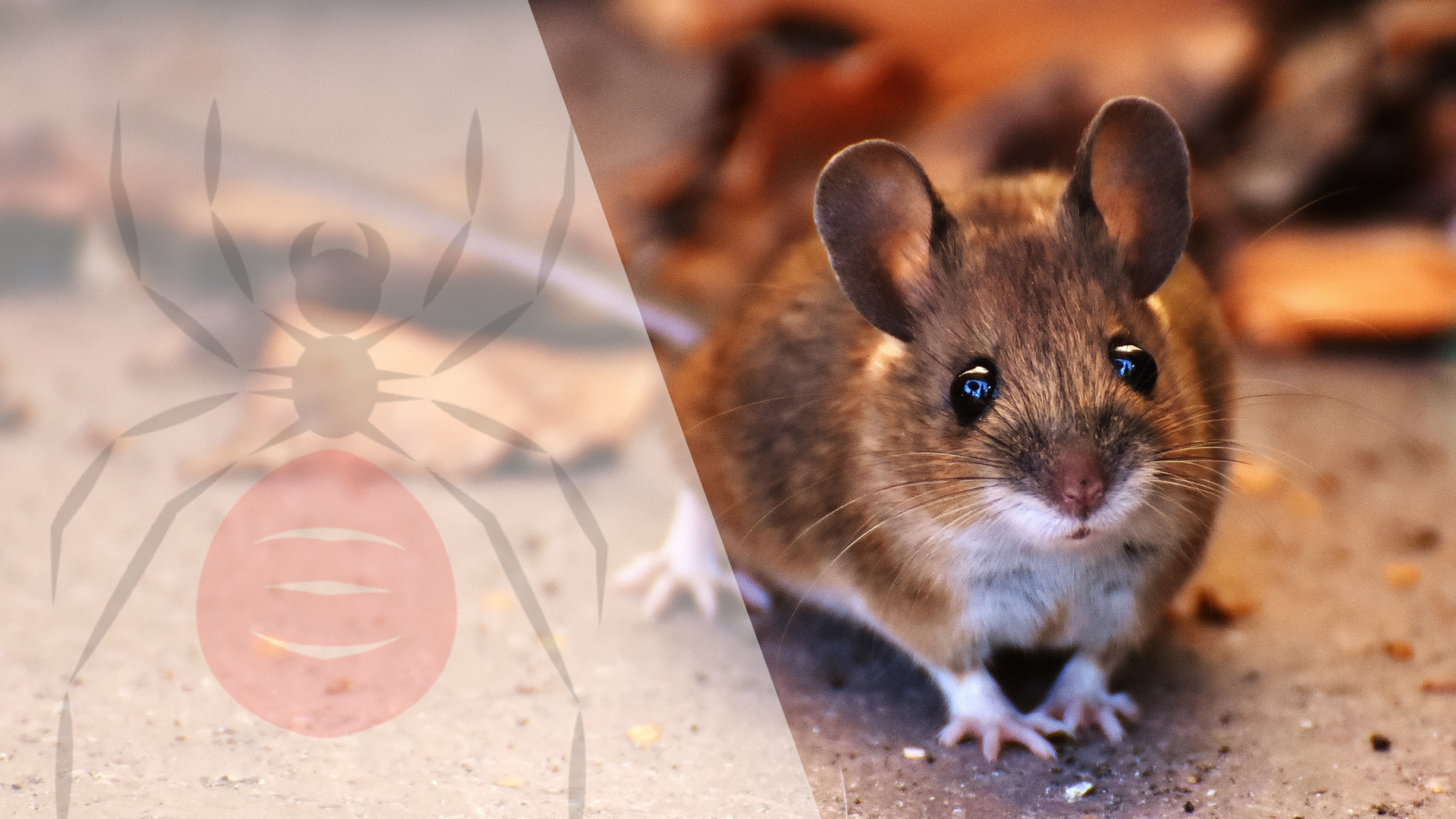NJ Bed Bug Laws
Written by
Tenant and Landlord Guide to Bed Bug Laws in NJ

Did you know that in New Jersey, the responsibility for bed bug extermination often falls on the landlord? This guide will navigate you through the bed bug laws in New Jersey, focusing on tenant rights, landlord obligations, and actionable steps to tackle infestations. By reading on, you'll learn how to effectively address bed bug issues in your Central Jersey apartment or Seaside beach rental, ensuring your living space remains pest-free. We'll also provide preventative measures to keep these unwelcome guests at bay. If you're grappling with a bed bug predicament, this article will arm you with the knowledge to seek a swift and fair resolution, potentially leading to a judgment in your favor.
Understand Bed Bug Laws in New Jersey: Essential Information
In New Jersey, understanding the intricacies of bed bug laws is crucial for both tenants and landlords. This section will define what constitutes a bed bug infestation, pinpointing the signs that warrant attention, such as sightings on mattresses or around living spaces in Central Jersey. It will also clarify the legal responsibilities for pest control, ensuring that both parties know their rights and duties. These insights offer valuable guidance on navigating the legal landscape to maintain a bed bug-free environment.
Define What Constitutes a Bed Bug Infestation in NJ
In New Jersey, a bed bug infestation is identified by the presence of live bed bugs, their eggs, or evidence of their activity, such as shed skins and fecal spots, within a property. This definition is critical for tenants and landlords as it directly impacts health, living conditions, and potentially, health insurance claims. Recognizing these signs early can prevent a small issue from becoming a widespread problem, safeguarding the well-being of residents and the integrity of the property.
When it comes to addressing a New Jersey bed bug infestation, the law requires prompt and effective action. Landlords are tasked with the responsibility of pest eradication, often necessitating professional extermination services. This not only protects the health of tenants but also serves as a preventive measure against potential legal liabilities and tax implications that can arise from neglecting such duties. Tenants, on their part, must cooperate by reporting issues swiftly and facilitating access for treatment, ensuring a collaborative approach to maintaining a pest-free living environment.
Identify Legal Responsibilities for Pest Control
In New Jersey, the legal responsibilities for pest control, particularly concerning bed bugs, are clearly delineated. Landlords must act swiftly to address any reported infestations, as their insurance policies may not cover negligence related to pest management. A failure to promptly eradicate bed bugs can lead to disputes that may require intervention by a lawyer or result in court proceedings. It is imperative for property owners, especially those operating bed and breakfast establishments, to maintain rigorous pest control protocols to avoid legal repercussions and ensure guest satisfaction.
Tenants have a duty to report bed bug sightings immediately to enable timely action. They should document the situation thoroughly, which can be crucial if the issue escalates to legal action. Cooperation during the extermination process is essential, as it can impact the effectiveness of the treatment and the potential for future infestations. By understanding their role in pest control, tenants contribute to a healthier living environment and may prevent the need for legal counsel or court involvement, thereby safeguarding their own interests and those of the community.
Know Your Rights as a Tenant Facing Bed Bugs in NJ
As a tenant in New Jersey, you have the right to a habitable living space, free from the distress of bed bugs in your bedroom, furniture, and other areas. It's essential to know how to request extermination services properly, ensuring that your home remains a safe and comfortable environment. This section will guide you through the process of exercising your rights effectively, from recognizing the need for action to engaging with extermination services. Understanding these rights can help you navigate potential issues without falling into debt or compromising your living conditions.
Recognize Your Right to a Habitable Living Space
Tenants in New Jersey have the legal right to a habitable residence, which includes being free from bed bug infestations. This right is protected under state housing laws, ensuring that tenants can expect their homes to be maintained in a condition that is safe and suitable for living. When bed bugs invade, it's not just a nuisance; it's a violation of the tenant's rights, and landlords are legally obligated to take corrective measures to restore the living space to a habitable state.
Understanding this right empowers tenants to demand prompt and effective treatment for bed bug issues. If a tenant encounters bed bugs, they should immediately notify their landlord, who is then responsible for arranging professional extermination services. This swift action is not only a legal requirement but also a critical step in preventing the spread of the infestation and ensuring the tenant's continued comfort and well-being in their home.
Request Extermination Services Properly
Tenants in New Jersey must take specific steps when requesting extermination services for bed bugs to ensure their rights are upheld. It begins with promptly notifying the landlord in writing, detailing the extent of the infestation and requesting immediate action. This written notice serves as a formal record, which can be vital if disputes arise or if the landlord fails to respond adequately to the bed bug issue.
Upon receiving a tenant's request, landlords are legally obligated to arrange for professional extermination services without undue delay. Tenants should prepare their space for treatment according to the exterminator's guidelines, which often includes laundering fabrics and clearing clutter. This preparation is crucial as it facilitates a thorough extermination process, helping to restore the tenant's living space to a safe and comfortable condition.
Comprehend Landlord Duties Under NJ Bed Bug Regulations
In New Jersey, landlords must address tenant complaints about bed bugs with urgency and effectiveness. The law mandates that property owners provide necessary pest control treatments to ensure habitable living conditions. This section delves into the specific duties landlords have when responding to bed bug complaints and the legal requirements for pest control treatments. By understanding these obligations, landlords can take decisive action to resolve infestations and maintain their properties in compliance with state regulations.
Address Tenant Complaints Promptly and Effectively
Landlords in New Jersey are legally bound to respond to tenant complaints about bed bugs without delay, ensuring the living space remains habitable. This swift response is not only a legal obligation but also a critical aspect of property management that can significantly affect tenant satisfaction and retention. By acting quickly, landlords can mitigate the spread of the infestation and maintain the property's reputation, which is essential in a competitive rental market.
Effective communication between landlords and tenants is paramount when dealing with
bed bug complaints. Landlords should establish clear protocols for reporting and addressing such issues, which can include designating a point of contact for tenants and providing a timeline for the extermination process. This approach not only streamlines the resolution process but also fosters trust, demonstrating the landlord's commitment to upholding a high standard of living for their tenants.
Provide Necessary Pest Control Treatments According to Law
Under New Jersey law, landlords are required to provide pest control treatments that effectively address bed bug infestations. This legal mandate ensures that rental properties meet health and safety standards, protecting tenants from the adverse effects of living with pests. Landlords must engage licensed pest control professionals who can deliver treatments that are both safe for occupants and successful in eradicating the infestation.
It is essential for landlords to not only initiate pest control measures but also to follow through with any recommended follow-up treatments. This diligence is a legal necessity to prevent reinfestation and demonstrates a commitment to maintaining habitable living conditions. By fulfilling these obligations, landlords help to preserve the quality of their rental properties and uphold their reputation among current and prospective tenants.
Take Action When You Find Bed Bugs in Your Rental Property
Discovering bed bugs in your rental property demands immediate action. As a tenant or landlord in New Jersey, it's imperative to report bed bug infestations to your landlord without delay and to meticulously document evidence of the pests. This section will guide you through the crucial steps of reporting and recording bed bug issues, ensuring legal compliance and a swift resolution. These actions are not only necessary for health and safety but also for protecting your rights and responsibilities under New Jersey law.
Report Bed Bug Infestations to Your Landlord Immediately
Upon discovering bed bugs, tenants in New Jersey should immediately inform their landlord with a written notice. This prompt communication is essential for initiating the extermination process and adheres to the state's bed bug laws, ensuring the landlord can take swift action. A quick response is not only beneficial for the tenant's living conditions but also crucial in preventing the spread of the infestation to other units.
Landlords receiving a bed bug report must prioritize this issue to maintain their property's habitability and comply with New Jersey's housing regulations. They should respond to the tenant's notification by arranging professional pest control services as soon as possible. This immediate action reflects a landlord's dedication to their tenants' well-being and the overall upkeep of the rental property.
Document Evidence of Bed Bugs in Your Rental Unit
Documenting evidence of bed bugs is a critical step for tenants in New Jersey, as it supports their case should the issue escalate. Tenants should take clear photographs of the bed bugs, their eggs, or any signs of their presence, such as blood spots on sheets or exoskeletons. Keeping a log of sightings and any bites or related health issues can also be instrumental in demonstrating the severity of the infestation to landlords or, if necessary, in legal proceedings.
For landlords, receiving well-documented evidence from tenants can expedite the pest control process and help in coordinating with exterminators. It's important for landlords to review and maintain these records as part of their property management files. This documentation not only serves as a record of the infestation and the response but also as a safeguard against future liability, ensuring compliance with New Jersey's bed bug laws and regulations.
Pursue Legal Remedies for Bed Bug Problems in NJ
When bed bug issues escalate beyond immediate extermination efforts, tenants and landlords in New Jersey may need to explore legal avenues. Filing a complaint with local health authorities can initiate an official investigation, while seeking compensation for damages ensures accountability and relief for affected parties. These steps, critical for upholding tenant rights and landlord responsibilities, will be further examined to provide a clear path for legal recourse in the face of bed bug infestations.
File a Complaint With Local Health Authorities
When bed bug infestations persist despite repeated efforts, tenants in New Jersey have the option to file a complaint with local health authorities. This formal grievance initiates an official investigation into the living conditions, compelling landlords to adhere to state regulations regarding pest control. It's a step that tenants can take to ensure their right to a habitable environment is protected, and it holds property owners accountable for their legal responsibilities.
Filing a complaint is a straightforward process that typically involves contacting the local health department and providing detailed information about the infestation. Tenants should be prepared to present evidence of the bed bugs, such as photographs or records of communication with the landlord. This action not only prompts an official response but also serves as a documented effort to resolve the issue, which can be beneficial if further legal action becomes necessary.
Seek Compensation for Damages Caused by Bed Bugs
Tenants in New Jersey who have suffered losses due to bed bug infestations may be entitled to seek compensation for damages. This can include reimbursement for destroyed property, medical expenses, and in some cases, emotional distress. Landlords are expected to maintain pest-free environments, and failure to do so can result in them being held financially responsible for the tenant's losses.
Initiating a claim for compensation typically involves gathering evidence of the infestation and its impact, such as receipts for personal property damages and medical bills. Tenants should present this information to their landlord and, if necessary, may proceed to small claims court to resolve the matter. It's crucial for landlords to respond to these claims seriously, as they reflect on their adherence to New Jersey's bed bug laws and their commitment to tenant welfare.
Prevent Bed Bug Infestations: Tips for Tenants and Landlords
Preventing bed bug infestations is a shared responsibility between tenants and landlords in New Jersey. Implementing routine inspections can detect bed bugs early, minimizing the risk of a full-blown infestation. Additionally, educating yourself on prevention strategies is essential for maintaining a bed bug-free living environment. These proactive measures are crucial for upholding the standards set by New Jersey bed bug laws and ensuring the comfort and safety of all residents.
Implement Routine Inspections to Detect Bed Bugs Early
Early detection through routine inspections is a key strategy for tenants and landlords in New Jersey aiming to prevent bed bug infestations. Landlords should schedule regular checks of rental units, focusing on areas where bed bugs are likely to hide, such as mattresses, bed frames, and furniture crevices. This proactive approach not only complies with New Jersey's bed bug laws but also helps in maintaining a pest-free property, ultimately preserving the health and satisfaction of tenants.
Tenants can also play a vital role in early bed bug detection by performing their own periodic inspections, particularly in high-risk areas like sleeping quarters and upholstered furniture. Reporting any signs of bed bugs to the landlord immediately can lead to prompt action, reducing the likelihood of a large-scale infestation. Such vigilance supports a collaborative effort between tenants and landlords to uphold the standards of habitable living spaces as outlined by New Jersey regulations.
Educate Yourself on Bed Bug Prevention Strategies
Knowledge is power, especially when it comes to preventing bed bug infestations. Tenants and landlords in New Jersey should educate themselves on the habits and habitats of bed bugs to better safeguard their properties. Understanding the common signs of an infestation, such as unexplained bites or tiny bloodstains on bedding, can lead to quicker identification and action, keeping living spaces clean and compliant with state regulations.
For landlords, providing educational materials and guidelines on bed bug prevention to tenants can be an effective strategy. This might include information on minimizing clutter, the importance of regular vacuuming, and the proper disposal of infested items. Such proactive communication helps create a cooperative environment where both parties are equipped to address potential bed bug issues promptly, ensuring the maintenance of habitable, pest-free rental units.
Conclusion
Understanding bed bug laws in New Jersey is vital for tenants and landlords, ensuring a habitable living environment and compliance with state regulations. Tenants must be vigilant in reporting infestations and landlords prompt in addressing them, with both parties sharing the responsibility for prevention and documentation. Legal avenues exist for those affected by bed bug issues, underscoring the importance of knowing one's rights and duties. This guide serves as a crucial resource, empowering both tenants and landlords to effectively manage and resolve bed bug concerns, maintaining the integrity of rental properties.
Get Quick, Efficient Pest Control & Exterminating
When pests invade your home, waiting isn't an option. At Resolve Pest Management, we understand how urgent these situations can be. That’s why we offer 24-hour emergency pest control services to residents in Lacey, NJ and Bayville, NJ. Whether it’s rodents, insects, or wildlife, our expert team is available day or night to protect your home and restore your peace of mind.
Our treatments are family and pet-friendly, ensuring that your loved ones—including the furry ones—are safe during and after service. We know your time is valuable, which is why we provide rapid scheduling, getting you the help you need, right when you need it.
If you're dealing with a pest emergency, don’t wait! Contact Resolve Pest Management today for immediate assistance. We're here to help make your home pest-free and comfortable again.
24-Hour Emergency Pest Control
We know pests can strike at any time- day or night. Resolve Pest Management is here to help 24 hours a day.

Family & Pet-Friendly Treatments
Protecting loved ones- furry or not is our #1 priority. We use pet-friendly treatments to give peace of mind.

Testimonials
"Resolve Pest Management is absolutely wonderful. Carlos and his team do thorough work and will put your mind at ease. They explain everything that needs to be done or what they suggest should be done. When we first called, Carlos showed up and checked every area of the house. Not only did he handle the mouse issue, he also found termite damage that was unknown to us. Since then, we have regular maintenance and have even called them other issues like bees. The receptionist is also very professional and kind, working with our availability. My family and I highly recommend Resolve Pest Management."
Tonianne D.
Barnegat Township NJ
Get on Schedule Today







